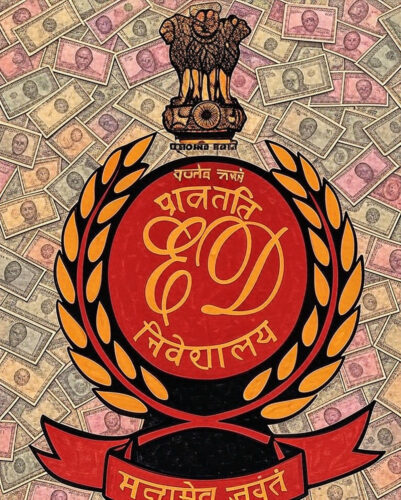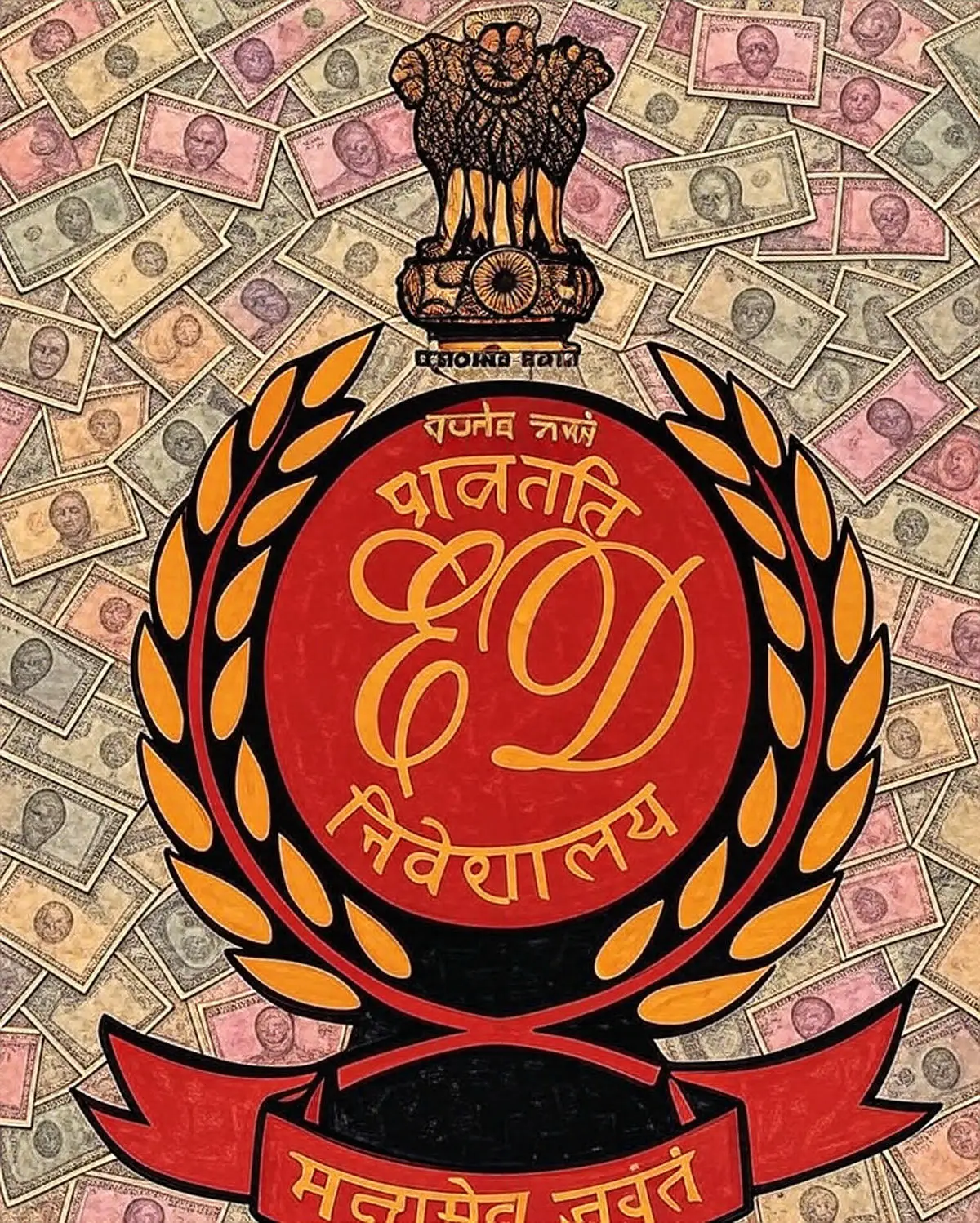
Explosive Claims of Extortion Nexus in Enforcement Directorate: Officer’s Son Kidnapped to Suppress Evidence
By Editorial Staff | Published: May 24, 2025
Explosive Claims Surface: Is an Extortion Nexus Thriving Within India’s Enforcement Directorate?
In a chilling revelation, serious allegations have surfaced accusing a high-ranking official within India’s Enforcement Directorate (ED) of masterminding an extortion nexus. At the center of this controversy is a dedicated ED officer who claims to have uncovered compelling evidence of systemic corruption. Shockingly, the officer alleges that their son was kidnapped in a brazen attempt to silence their efforts to expose this illicit network. Despite submitting detailed evidence to the ED headquarters and the Ministry of Home Affairs, the officer continues to face threats, raising urgent questions about accountability, transparency, and justice within one of India’s most critical investigative agencies.
This disturbing case has ignited public concern about the integrity of institutions tasked with combating financial crimes. How could such a nexus operate within the ED? Why has no inquiry been launched against the accused official? And what does this mean for the safety of honest officers who risk everything to uphold the law? These questions demand answers as the nation grapples with the implications of this alarming scandal.
A Courageous Officer’s Battle Against Corruption
The officer, whose identity is withheld for safety reasons, has reportedly spent years investigating financial misconduct within the ED. According to sources, the officer compiled substantial evidence implicating a high-ranking official in an extortion racket that allegedly misuses the agency’s authority to coerce businesses and individuals. Described as “ironclad,” the evidence includes financial records, communications, and witness statements pointing to a sophisticated network operating under the cover of legitimate investigations.
In a bold act of integrity, the officer submitted this evidence to the ED’s headquarters in New Delhi and a copy to the Ministry of Home Affairs, expecting prompt action. Instead, the officer faced a horrifying retaliation: their son was kidnapped. Insiders allege that the kidnapping was a deliberate tactic to force the officer to retract their accusations and surrender the evidence. This shocking escalation has sparked widespread concern about the lengths to which powerful figures may go to protect their interests.
Threats and Intimidation: A Disturbing Pattern
Compounding the officer’s ordeal, they have reportedly received multiple threats, some traced to numbers linked to associates of the accused high-ranking official. These threats, delivered with alarming precision, have warned the officer against pursuing the case further. Despite this intimidation, the officer remains steadfast in their pursuit of justice, even as their son, now safely recovered, remains under protection. The use of such coercive tactics raises serious questions about the safety of whistleblowers within India’s investigative agencies.
Equally troubling is the lack of a formal inquiry into the high-ranking official’s alleged involvement. Sources indicate that the evidence submitted to the ED and the Home Ministry has yet to trigger an official investigation, fueling concerns about potential cover-ups or institutional reluctance to address internal corruption. The public is left questioning: If an honest officer’s evidence is ignored, what hope exists for systemic reform?
The Extortion Nexus: A Broader Conspiracy?
The allegations suggest a deeply entrenched extortion nexus that may involve multiple officials within the ED, exploiting their authority to extort funds from vulnerable targets. Such schemes reportedly involve threats of investigations or arrests unless payments are made, undermining the credibility of an agency tasked with combating money laundering and financial crimes. The officer’s evidence allegedly includes detailed records of transactions and communications that expose the inner workings of this nexus, implicating not only the high-ranking official but potentially others in positions of power.
This case resonates with prior reports of misconduct linked to the ED. For example, in 2024, the ED conducted raids in Jharkhand tied to a land scam and extortion case involving government officials and a lawyer who allegedly defrauded officials of ₹6 crore by promising to “manage” ED investigations. In 2016, Delhi’s Special Cell dismantled a racket where individuals posed as ED officials to extort prominent figures. These incidents highlight a recurring pattern of exploitation within or around the ED, lending credibility to the current allegations and underscoring the need for urgent action.
The Human Toll of Standing Up for Justice
The kidnapping of the officer’s son illustrates the profound personal risks faced by those who challenge powerful interests. The officer’s family has endured unimaginable distress, with their son’s safety used as leverage to suppress the truth. This act of desperation underscores the high stakes involved in confronting systemic corruption. The officer’s unwavering resolve, despite these personal costs, serves as a testament to the courage required to uphold integrity in the face of adversity.
Public response to this case has been one of outrage and concern. Social media platforms are abuzz with demands for transparency and accountability, with many questioning the inaction of the Home Ministry and ED leadership. The lack of response fuels speculation about whether powerful figures are being protected, further eroding public trust in institutions meant to safeguard the nation’s financial integrity.
A Call for Transparency and Reform
This case raises critical questions about the protections in place for whistleblowers within India’s investigative agencies. If honest officers face retaliation, including threats to their families, what message does this send to others who uncover corruption? The absence of an inquiry into the high-ranking official’s alleged actions points to a pressing need for stronger oversight mechanisms to ensure accountability and protect those who expose wrongdoing.
As this story unfolds, it compels us to ask: How can India strengthen its institutions to prevent such abuses of power? What steps must be taken to ensure that honest officers are supported rather than silenced? The answers to these questions will shape public trust in the ED and the broader fight against corruption.

















